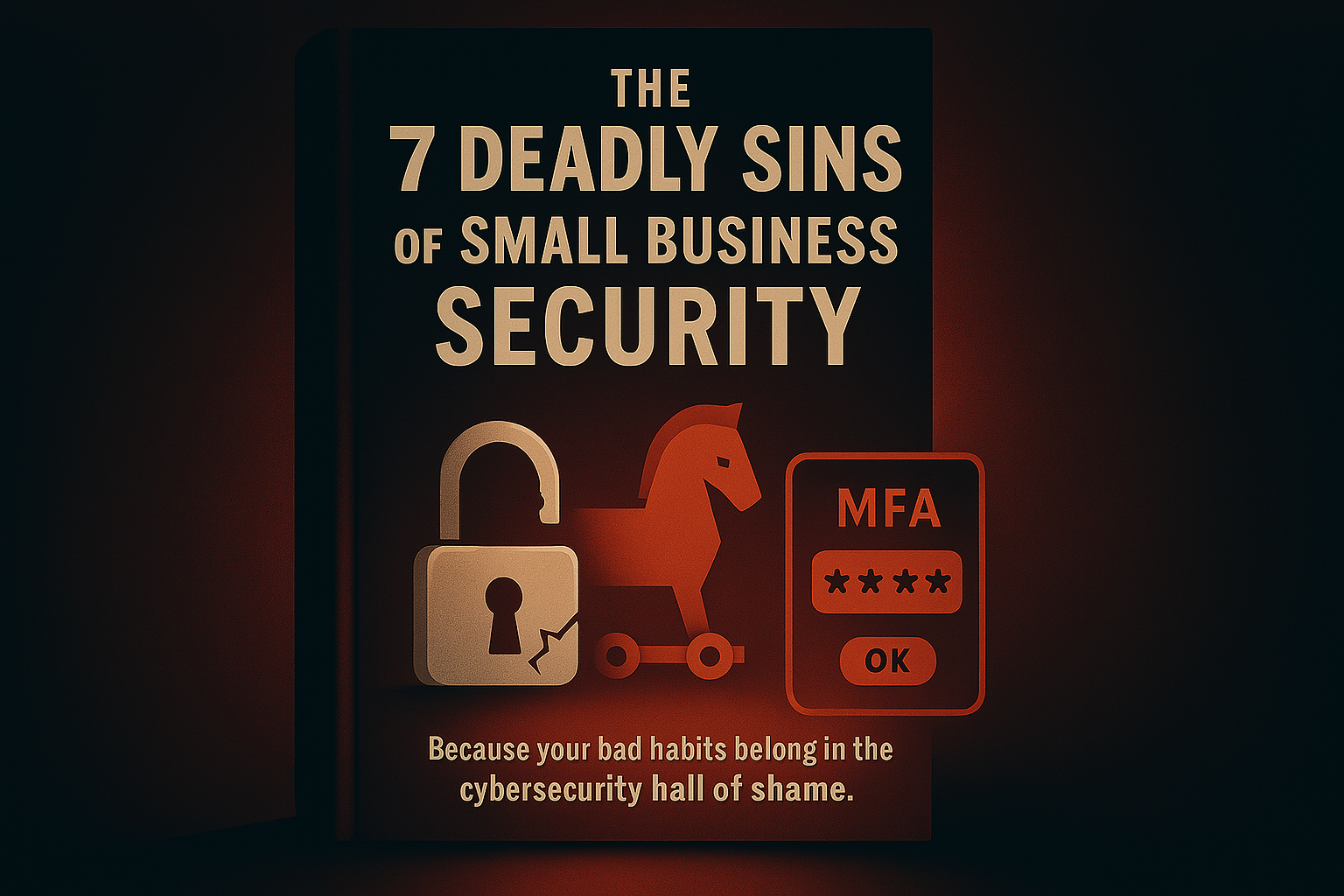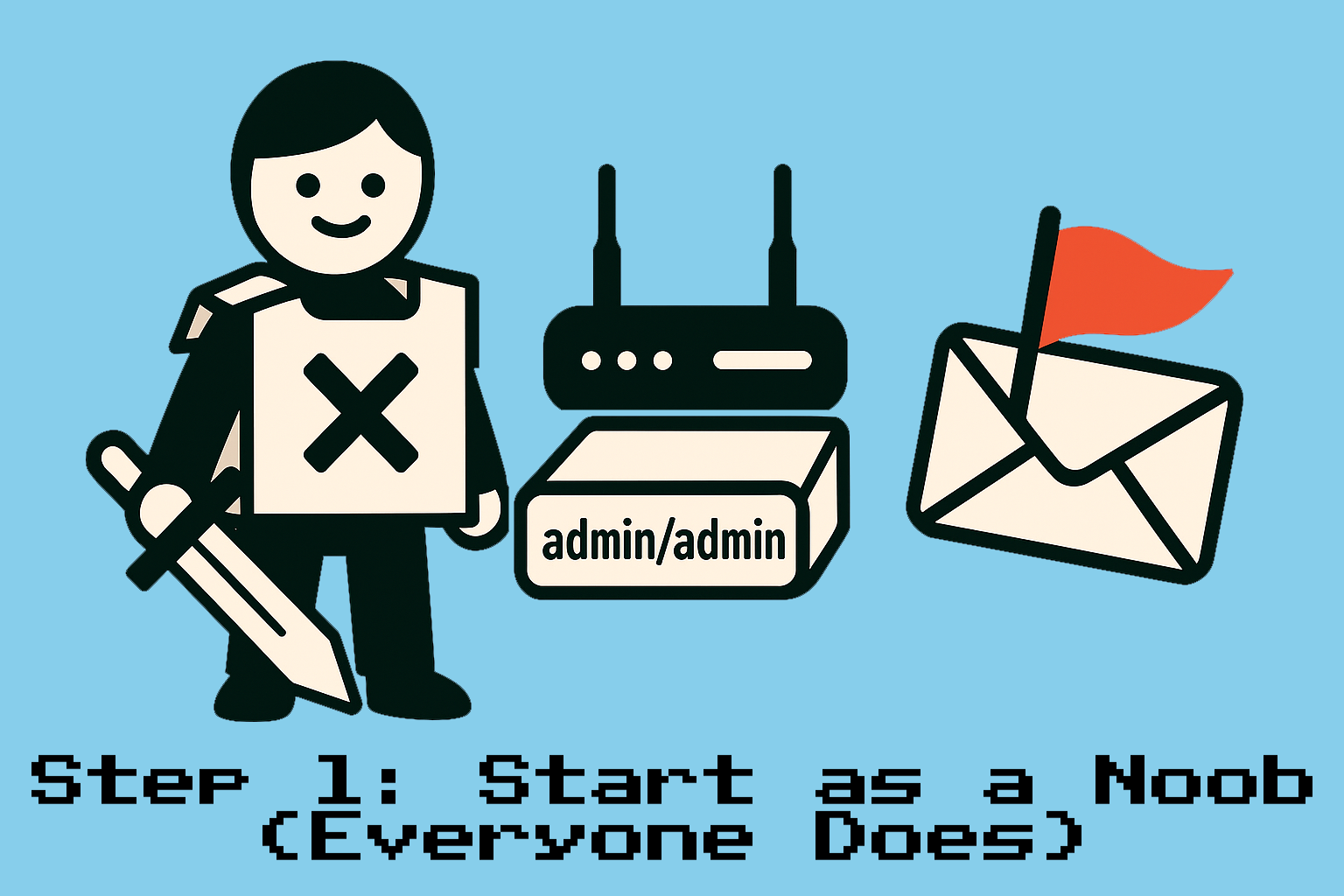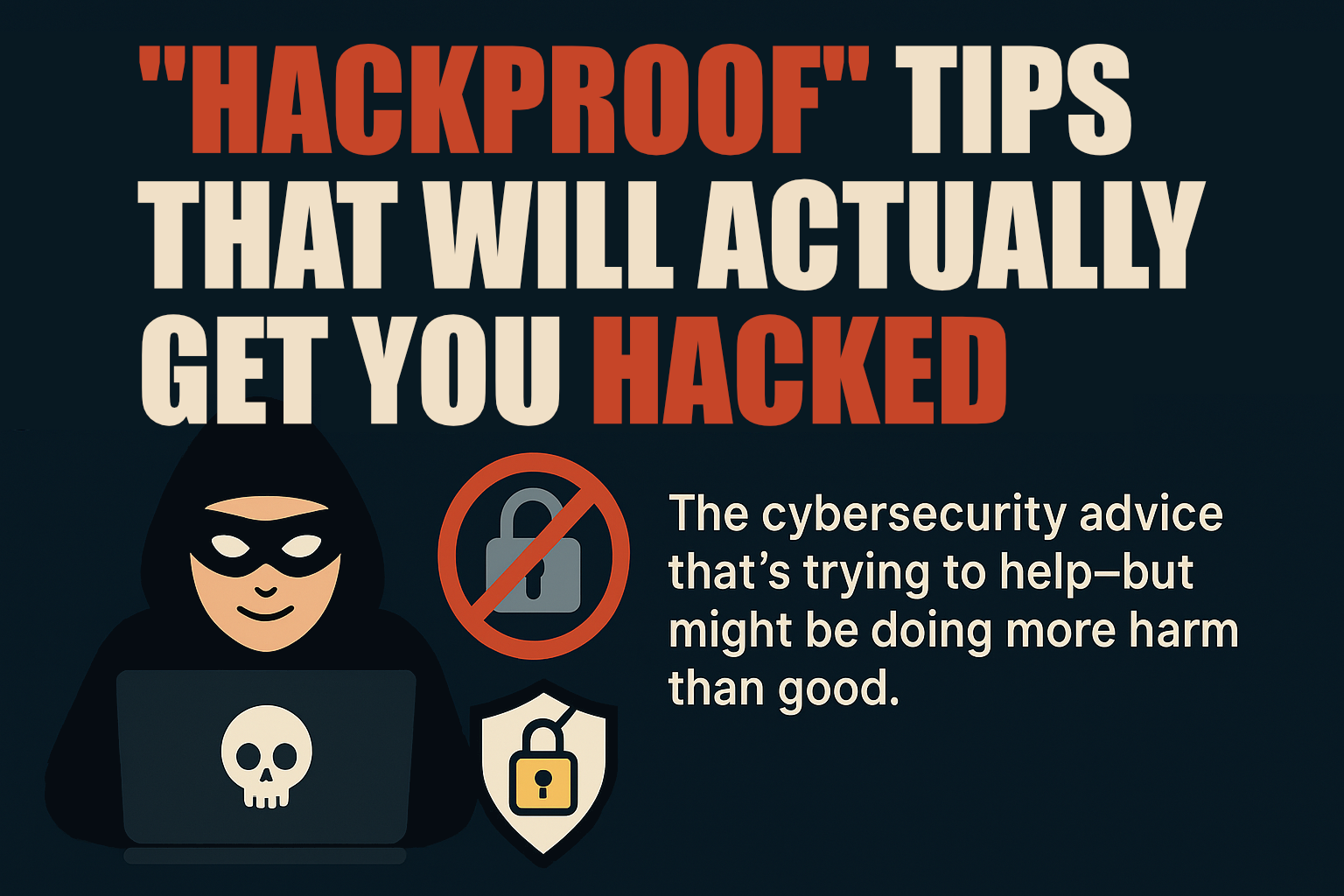Cybersecurity isn’t just about fancy firewalls and pricey gizmos; in fact, it’s mostly about habits. Unfortunately, bad habits tend to linger like whatever’s growing in the back of the office fridge.
So, to start, let’s shine a light on the 7 Deadly Sins of small business security—these are the kinds of mistakes that leave doors open and data exposed.
The 7 Deadly Sins:
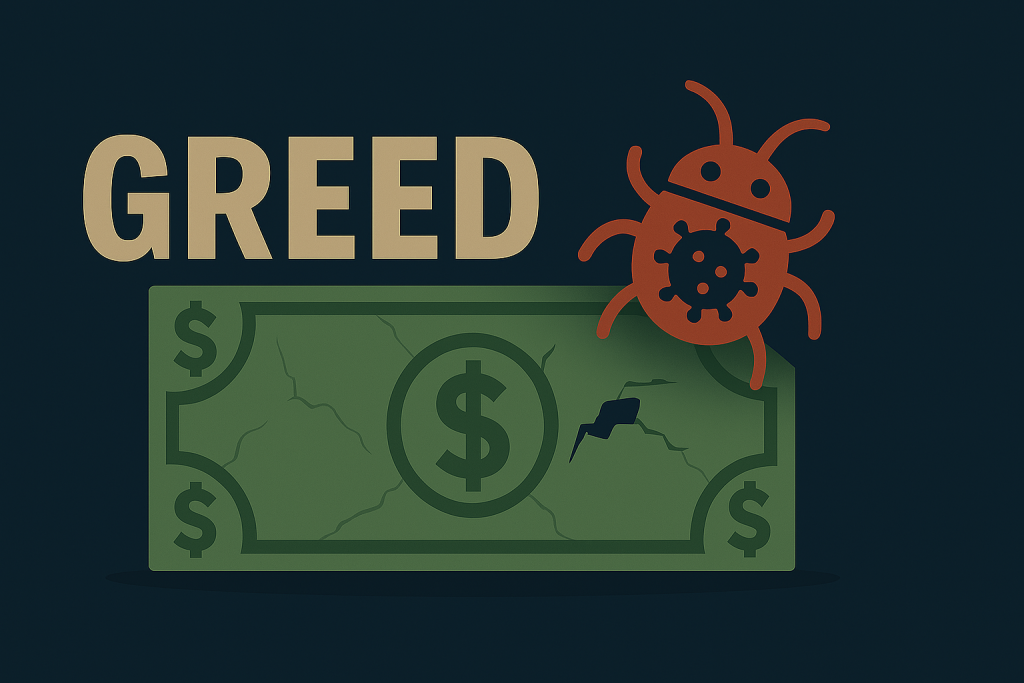
1. Greed: Cheap Security That Costs You Way More Later
“You get what you pay for” isn’t just about dodgy phone chargers. Skimping on security tools or skipping best practices might save you pennies now, but it’s a jackpot for hackers—and a wallet-buster when you get breached.
Fix it: Invest in essentials—good password managers, multi-factor authentication (MFA), and regular security check-ups. Your future self will thank you.

2. Sloth: Ignoring Updates Like It’s a To-Do List Item from Hell
If “Remind Me Later” were a security strategy, hackers would be throwing daily victory parties. Skipping updates doesn’t just slow you down—it leaves known vulnerabilities wide open for exploitation.
Fix it: Stay current across the board. Keep your operating systems, software, plugins, and even device firmware updated. Turn on automatic updates where possible, and schedule regular check-ins for anything that doesn’t update itself. Running Windows 7 (or, heaven forbid, XP) in 2025? It’s time for an intervention.

3. Wrath: Blaming Employees Instead of Training Them
Pointing fingers at employees for clicking phishing links only breeds fear—not security. Shaming your team keeps them quiet and opens you up to bigger risks.
Fix it: Build a blame-free security culture that trains and empowers staff. Teach ‘em to spot scams, don’t shame them for falling for one.

4. Envy: Thinking You Need a Fortune 500 Budget to Be Secure
It’s easy to get jealous of big companies flashing their massive IT teams and million-dollar security setups. You might think, “We can’t compete — we don’t have that kind of cash.” But here’s the brutal truth: hackers don’t care how fat your budget is. They care about how easy you make it to break in. Small businesses are the low-hanging fruit because attackers automate attacks and look for the weakest links — often you.
Fix it: Stop measuring your security by your bank account. You don’t need a Fortune 500 budget to get solid protection. Lock down the basics—strong passwords, multi-factor authentication, keep your software up to date, and train your team to spot scams. That’s how you turn envy into defense.
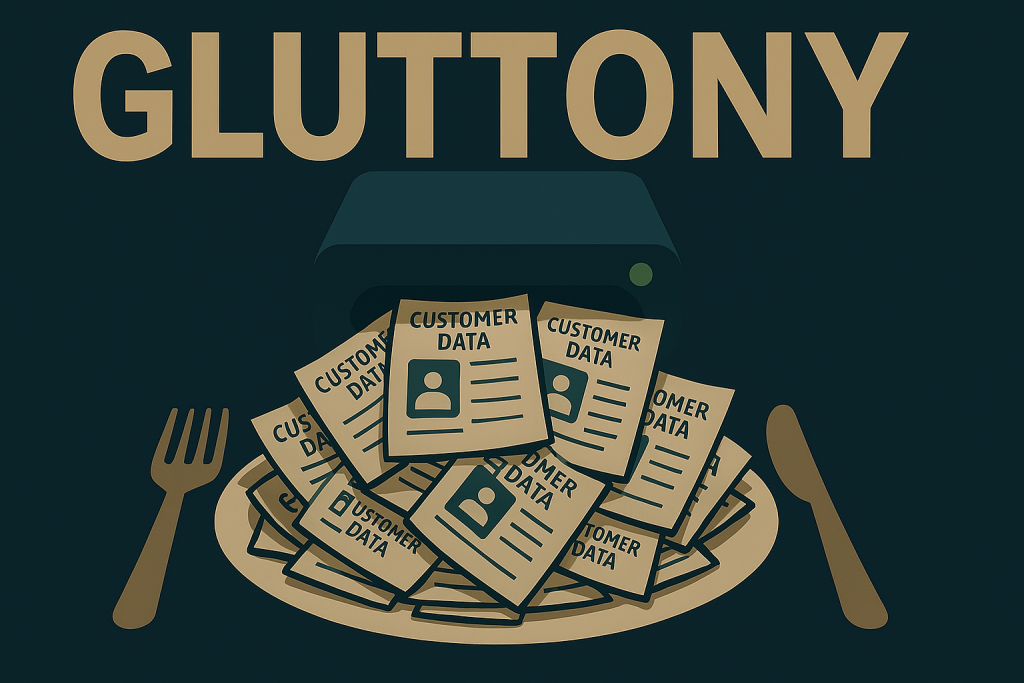
5. Gluttony: Hoarding Customer Data Like It’s Black Friday
Do you really need your customer’s dog’s name or favorite pizza topping? Collecting too much data is a liability, not an asset. More data = bigger risk if you get hacked.
Fix it: Collect only what you absolutely need, and encrypt the heck out of it.

6. Pride: “We’re Too Small to Get Hacked” Syndrome
Thinking you’re safe because you’re a small business? That’s like skipping insurance because your office isn’t in a skyscraper. Hackers don’t care how big you are—just how easy you are.
Fix it: Take basic security seriously. Strong passwords, MFA, secure backups, and clear policies aren’t just for the big guys—they’re for anyone who doesn’t want to clean up a mess later.

7. Lust: Chasing Every Shiny New Security Gadget Without a Plan
Buying every new security tool without a strategy is like buying gym equipment and never working out. More tools doesn’t mean more secure—often it means more confusion.
Fix it: Master the basics first. Passwords, training, encryption, and network security always beat flashy distractions.
Time for Redemption: How to Break the Cycle
Security isn’t about being hack-proof. It’s about being unappealing. Here’s your quick-start checklist:
✅ Use MFA & password managers
✅ Train your team on phishing and scams
✅ Keep software updated—always
✅ Collect only necessary customer data
✅ Back up everything religiously
At Opposite of Serious Security, we believe cybersecurity can be smart, practical, and even a little fun—without the usual jargon and panic.
Ready to stop being an easy target? We got you.
👉 Check out more guides or Join the waitlist for policies that don’t suck.
